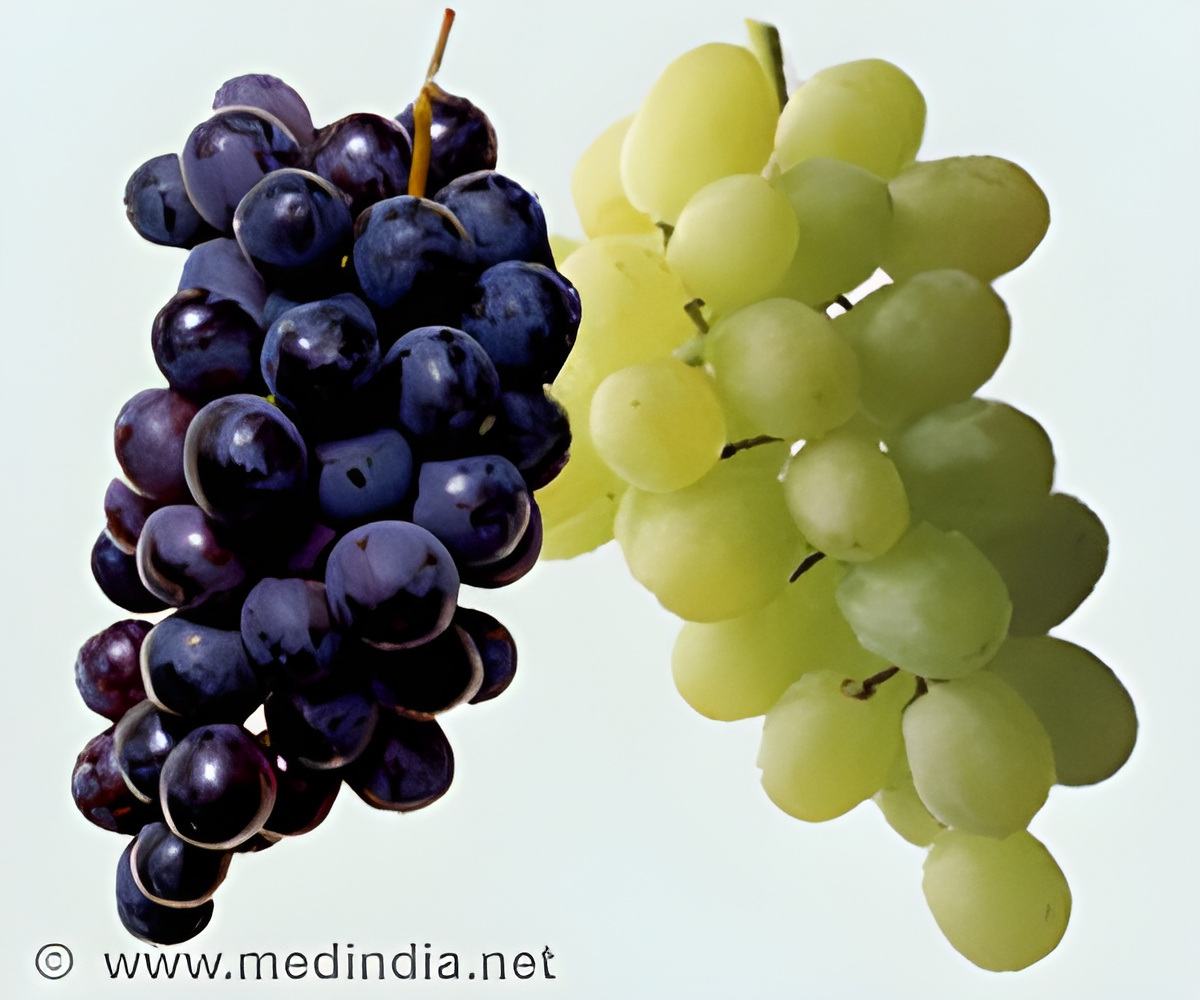Consume whole grapes to reduce chances of heart failure if you are hypertensive, say scientists from University of Michigan.

Untreated chronic high blood pressure leads to heart failure where the heart muscles become stiff and thickened (fibrosis) and are not able to fill up with blood. This results in diastolic heart failure.
Studies have shown that oxidative stress plays an important role in causing heart failure. Oxidative stress occurs when there is an excess production of reactive oxygen species (ROS) relative to levels of antioxidants. This imbalance is called impaired antioxidant defense. It's seen that reduced levels of antioxidants such as glutathione can increase ROS levels.
Therefore, levels of antioxidants in the heart need to be increased through intake of antioxidant rich diet to reduce ROS levels and increase antioxidant defense.
Although it is known that phytochemicals in plants can alter gene activity related to antioxidant defense, scientists were not sure if dietary intake of these phytochemicals brings about the chemical changes and whether it can reduce the chances of hypertension-associated heart failure.
Grapes are a natural source of antioxidants and other polyphenols that are highly beneficial for heart health and general well being.
'Our hypothesis is that whole grapes will be superior to any individual grape component, in each of the areas being investigated,' said Seymour. 'The whole fruit contains hundreds of individual components, which we suspect likely work together to provide a synergistic beneficial effect'.
"The insights gained from our NIH study, including the ability of grapes to influence several genetic pathways related to antioxidant defense, provide further evidence that grapes work on multiple levels to deliver their beneficial effects," said Seymour.
"Concentrated antioxidant nutrient trials have failed to affect heart failure. However, this study demonstrates that diet-relevant intake of antioxidants significantly reduces heart failure progression," concluded the researchers. "Therefore, this study suggests that higher intake of phytochemical-containing foods may achieve cardiac benefits that isolated antioxidant supplements may not".
Source-Medindia















